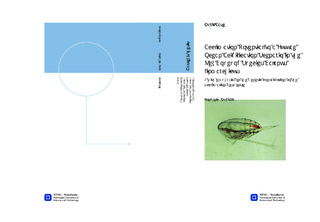Acclimation Potential to a Future Ocean Acidification Scenario in the Key Copepod Species Calanus finmarchicus: - with emphasis on the genetic contribution to the acclimation response
Abstract
Ocean acidification, as a result of the increased concentration of carbon dioxide in the ocean, poses a threat towards marine ecosystems through lowered pH and altered seawater chemistry. The marine copepod Calanus finmarchicus is an ecologically and socioeconomically important species. In this study C. finmarchicus collected in Trondheimsfjorden was exposed to a CO2 concentration relevant for year 2300 (~2080 ppm) for two consecutive generations in the laboratory. The ability of C. finmarchicus to acclimate towards a pCO2 scenario relevant for year 2300, as well as the genetic contribution to this ability, was investigated in the study. Individuals exposed to elevated CO2 concentrations for two generations had significantly higher LC50 values than individuals kept under ambient CO2 concentrations, which indicates that C. finmarchicus has the ability to acclimate to a pCO2 scenario of 2080 ppm. Microsatellite analyses on the animals revealed a tendency of lower genetic diversity, measured as allelic richness and expected heterozygosity, in the populations exposed to high CO2 concentrations compared to the control populations, although the difference was not significant. The microsatellite analysis thus indicated that some of the observed increase in tolerance among the CO2 exposed animals may be due to genetic adaptation, but this needs to be further studied. The present study indicated that C. finmarchicus may be tolerant towards the direct effects of a pCO2 scenario relevant for year 2300.
